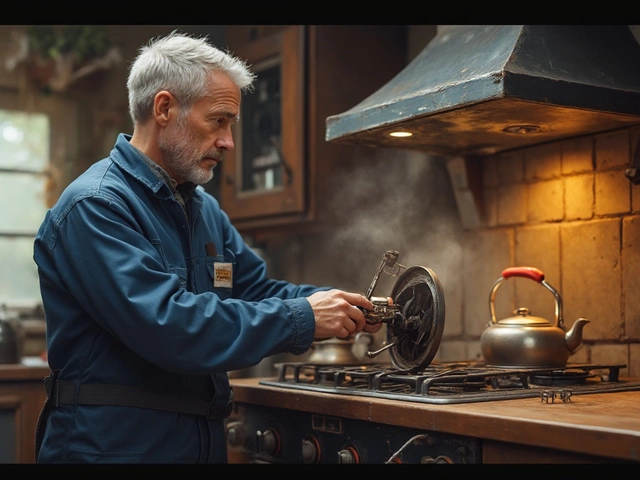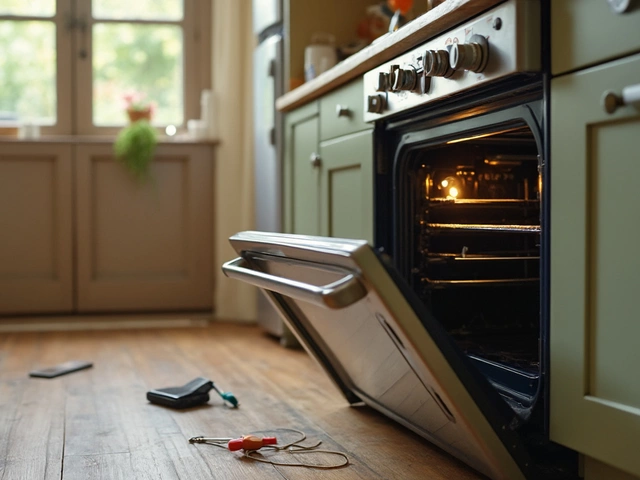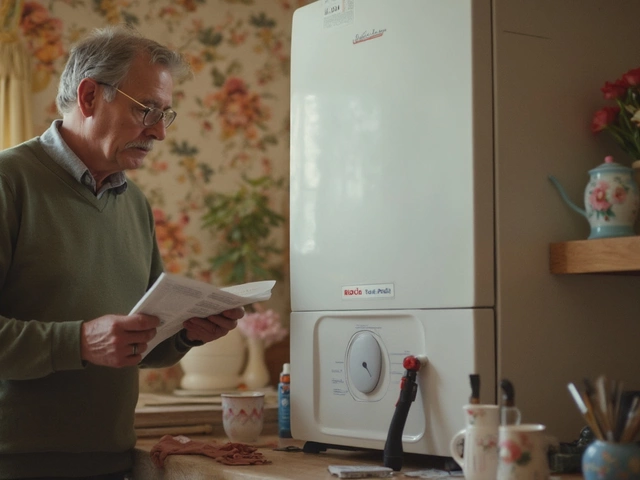Boilers are the unsung heroes of home heating. While they quietly keep our homes cozy, they rarely get the attention they deserve until something goes wrong. Most people wonder how long a boiler should last before it’s time for a replacement. The truth is, a well-maintained boiler can serve you faithfully for many years, though its exact lifespan can depend on numerous factors.
To navigate through the life of your boiler wisely, it's important to grasp the factors that contribute to its longevity, recognize the early warning signs of trouble, and learn the best practices for extending its life. This way, you can ensure your home remains comfortable without unexpected heater breakdowns.
- Understanding Boiler Lifespan
- Factors Affecting Boiler Longevity
- Signs Your Boiler Needs Attention
- Tips for Extending Boiler Life
Understanding Boiler Lifespan
When pondering the lifespan of a boiler, the answer isn't always cut and dry. On average, a residential boiler can last anywhere from 10 to 15 years, sometimes even stretching to two decades with proper care. Several elements like the type of boiler, its make and model, the quality of installation, and ongoing maintenance play significant roles in determining how long your heating system will tick away quietly in the background.
The type of fuel your boiler uses can influence its lifespan as well. Natural gas and oil boilers typically have longer lifespans compared to electric models, given the latter's different heating mechanism. Electric boilers usually need components replaced more frequently, which can wear them out faster than their gas-powered peers. Additionally, newer, high-efficiency condensing boilers, although fantastic for energy savings, may have a more complicated setup that requires careful maintenance, potentially affecting their durability.
Interestingly, technological advances in recent years have paved the way for more efficient and robust boiler models. Modern high-efficiency units can offer savings on your energy bills but might require a bit more attention maintenance-wise than the old heavy-duty versions. These enhancements have been spurred on by efforts to minimize carbon footprints, offering a better balance between performance and environmental impact. As noted by the Australian Institute of Refrigeration, Air Conditioning and Heating (AIRAH), "innovation in boiler technology not only boosts efficiency but also extends the life of equipment significantly."
The British Gas reports that while an average boiler should reliably serve about 12 years, regular servicing and proper installation can sometimes push it closer to the 15-year mark. Keeping a close eye on its performance can alert homeowners to service needs before they escalate into bigger issues.
To help visualize the typical lifespan of different boiler types, consider the following approximations, acknowledging that individual results may vary due to several influencing factors:
| Boiler Type | Average Lifespan |
|---|---|
| Traditional Gas Boiler | 10-15 years |
| Electric Boiler | 8-12 years |
| Condensing Boiler | 15-20 years |
Having a grasp on these timelines can prepare you to anticipate when a replacement might be necessary, helping you plan investments in your home's heating efficiency. Embracing routine checks and timely maintenance fosters a healthy, long-lasting system, ensuring your boiler hums along happily for its full potential lifespan.

Factors Affecting Boiler Longevity
When it comes to understanding how long your boiler might last, several elements play a significant role. The lifespan of a boiler can be quite variable, ranging generally between 10 to 15 years, sometimes even stretching beyond that with luck and care. Here, we explore the critical factors that draw the line between a boiler that breaks down prematurely and one that continues to function efficiently for years. Among these factors, the quality of the installation is paramount. If the boiler is poorly installed, not only will its efficiency be compromised, but this might also lead to frequent repairs, ultimately shortening its life. Always ensure that a qualified professional handles the installation.
Additionally, the type of boiler you choose significantly dictates its lifespan. For instance, modern condensing boilers, which are celebrated for their energy efficiency, tend to have a better longevity compared to older models. These boilers are designed to extract more heat from the same amount of fuel, making them not only economical but also durable. The material of the heat exchanger within the boiler is particularly important. Stainless steel heat exchangers tend to last longer than aluminum ones because they are resistant to corrosion and scaling—a common issue in areas with hard water.
Speaking of water, the quality of water in your area can also affect boiler life. Hard water can create limescale buildup within the boiler system, leading to increased pressure and wear that can degrade the system over time. If your home is in a hard water area, installing a water softener can mitigate this risk. Regular maintenance and servicing play equally critical roles. Most boiler manufacturers recommend annual servicing to check for any potential problems and optimize performance. "Regular preventative maintenance is key to ensuring heating efficiency and extending a boiler’s lifespan," notes the Home Heating Association.
"Just as with a car, preemptive care and maintenance can avert major future costs, ensuring consistent efficiency and durability," says Mark Davis, a respected heating engineer.
To further break it down, consider a checklist of maintenance tasks: checking for leaks, ensuring proper ventilation, and examining the system’s pressure and temperature settings. Regularly bleeding your radiators if they’re part of the setup can prevent airlocks that might force your boiler to work harder, thus wearing it down faster. Finally, lifestyle and usage are personal, yet significant, influences. A bustling home with constant heating needs will exert more stress on a boiler compared to a single-person household. Adjusting the thermostat wisely and using thermostatic radiator valves can aid in managing demand efficiently.
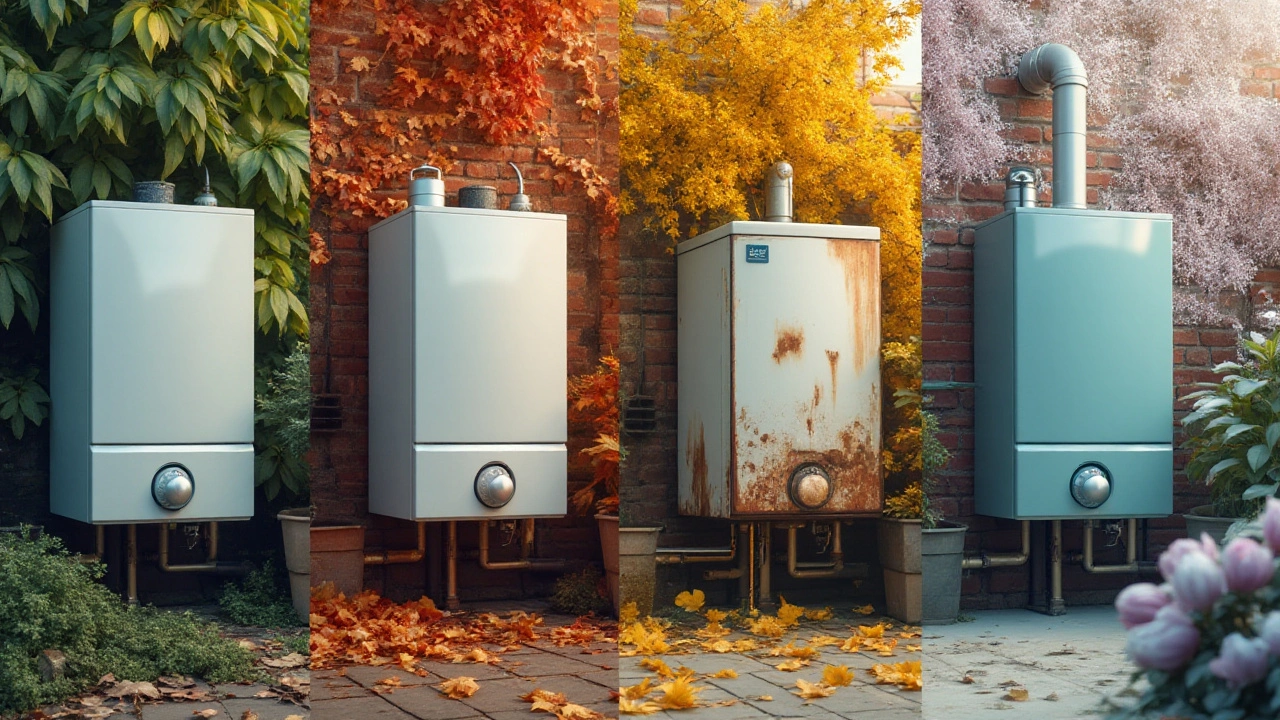
Signs Your Boiler Needs Attention
Your boiler is making unusual noises, and those sounds are a clear cry for help. Whether it's banging, clanging, or even whistling, noises can indicate various underlying issues. Often, these sounds are caused by the accumulation of limescale or sludge within the system, creating blockages that can reduce efficiency and cause parts to wear prematurely. It's not just the noise that’s troublesome; it’s what lies ahead if ignored. Continuing to run a noisy boiler can escalate minor issues into serious faults, eventually leading to a total breakdown. Consistent maintenance checks can help pinpoint these problems early, saving both time and money in the long run.
Another sign of ailing boiler lifespan is fluctuating water temperatures. When your showers go from boiling hot to freezing cold, it’s more than just an inconvenience. This erratic temperature behavior often stems from a failing thermostat or faulty valves, both of which are integral to maintaining consistent heat. Addressing these parts immediately helps prevent undue stress on the system and potential water damage. Such inconsistencies might also signal that the boiler is struggling to meet demands due to age-related decline, an indication that it could soon need replacement or significant repair.
Pay attention to any rise in your heating bills without a corresponding increase in usage. An efficient boiler shouldn’t contribute to alarming utility costs. If your energy bills spike suddenly, it suggests that the system is burning more fuel to maintain the same levels of heating. This inefficiency often arises from worn-out parts or blocked components that force the boiler to work harder than necessary. Keeping an eye on energy consumption and consulting with a professional can pinpoint these inefficiencies and decide whether the boiler simply requires servicing or it’s time for an upgrade.
Sometimes the signs your boiler needs attention are not easily seen but rather come as a change in how your home feels. If certain rooms are consistently colder than others or the heating doesn’t come on promptly, it could be a problem with your boiler's circulation. Inadequate circulation might be a result of failing pumps or poor pressure, both of which are key issues that need immediate addressing to avoid further damage. As home comfort is a priority during colder months, solving these issues before they impact your living space is crucial.
"Regular maintenance is the key to prolonging the life span of a boiler while ensuring it operates at peak efficiency," advises the Energy Saving Trust.
Lastly, watch for visible signs of distress from your boiler unit itself, such as leaks or corrosion. Any water puddles around the boiler are red flags and can lead to more serious complications such as electrical faults or water-related damages in the home. Corrosion not only weakens the structural integrity of the boiler but also affects the water quality and heating performance. Address leaks immediately as even the smallest drip can worsen quickly under pressure. Having a professional evaluate the situation can prevent unforeseen hazards and protect your investment in heating efficiency.
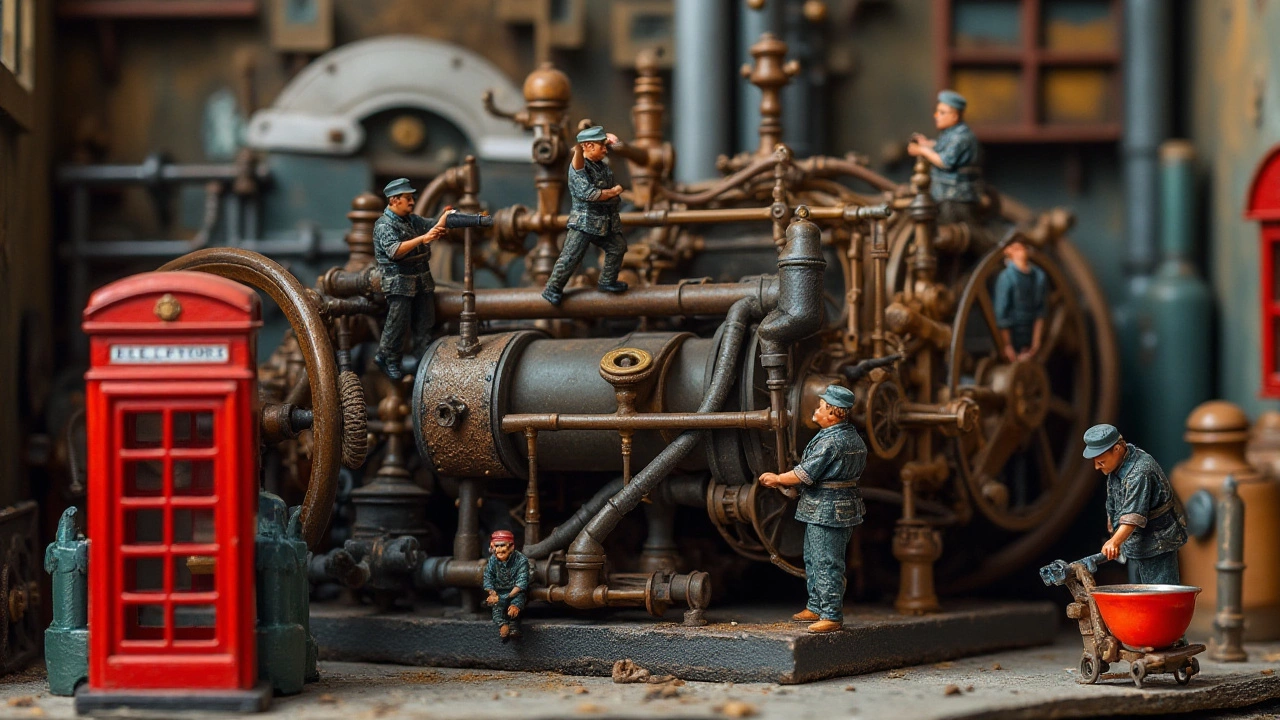
Tips for Extending Boiler Life
Keeping your boiler at peak performance and extending its lifespan requires a combination of attention, routine maintenance, and sometimes a bit of expert help. One of the most effective ways to prolong the life of your boiler is through regular servicing. Much like a car, a boiler needs annual checks to ensure all its parts are working smoothly. This not only prevents potential hazards but also catches any minor issues before they turn into costly repairs. Many manufacturers stipulate that the warranty remains valid only if you commit to these scheduled services, akin to having your passport stamped while traveling across borders to validate your journey.
Another key practice is to regularly bleed your radiators. Over time, air can get trapped within the heating system, causing your radiators to become less efficient and putting undue strain on your boiler. By releasing this air, known as bleeding, you improve the overall heating efficiency and thus extend the lifespan of your unit. This simple task can make a world of difference and is something homeowners can easily do without professional assistance. Having this hands-on approach towards maintenance can save both energy and money. For those who've never bled a radiator before, it's worth noting that the task is fairly straightforward. Just have a key at hand, and a small cloth to catch any drips, then turn the valve slightly and listen for the hiss.
Interestingly, upgrading your thermostat is another effective way to preserve your boiler's functionality. Newer thermostats offer programmable features, enabling better control over your heating schedule. Not only does this increase efficiency, but it helps avoid overworking your boiler, allowing it to consume energy more wisely and last longer. According to a study by the UK Energy Saving Trust, simply reducing your home’s temperature by just 1 degree can cut heating bills by up to 10%. This statistic alone showcases the symbiosis between maintaining a prudent heating strategy and ensuring longevity of the equipment.
Maintaining a consistent boiler pressure is equally paramount. Low or high pressure can drastically affect your heating system’s performance. An optimal pressure level for most boilers ranges between 1 and 1.5 bars when the system is cold. You can usually find this information in your boiler’s manual or for specific models online. If the pressure is not within the advised range, it might be worth investigating with help from a professional since these adjustments can sometimes signal underlying issues that require expert assessment.
Finally, insulating your pipes can prevent them from freezing during the colder months, which is a dangerous scenario that can lead to extensive damage not only to your boiler but to your entire home heating system. Pipe insulation is a simple, cost-effective measure that reduces heat loss and keeps your boiler from working overtime to compensate for cold external conditions. It’s an often overlooked, yet crucial step, particularly in regions where winters can be harsh.
As Matt Riddle, an energy expert, once said, "Regular maintenance is the best insurance for your boiler; it’s not just about fixing what's wrong, but about preventing the wrong from happening."Therefore, understanding these practices and implementing them as part of your home maintenance routine can certainly help in keeping your boiler functioning efficiently for years longer than expected.

